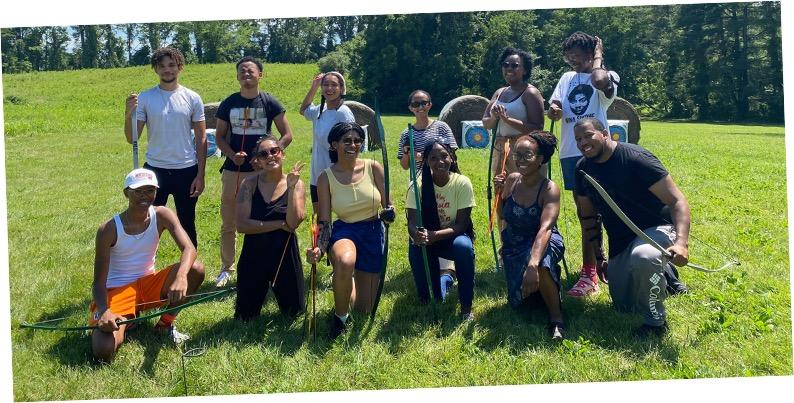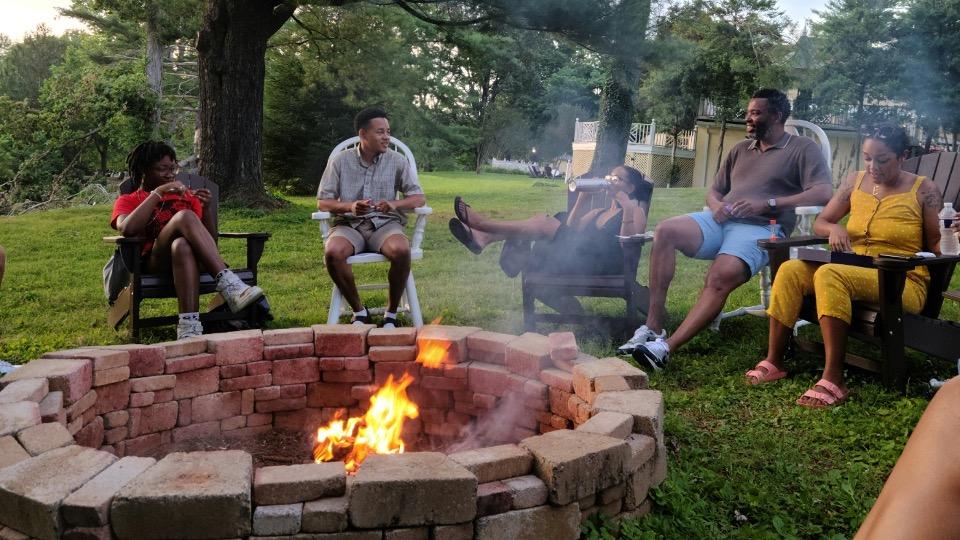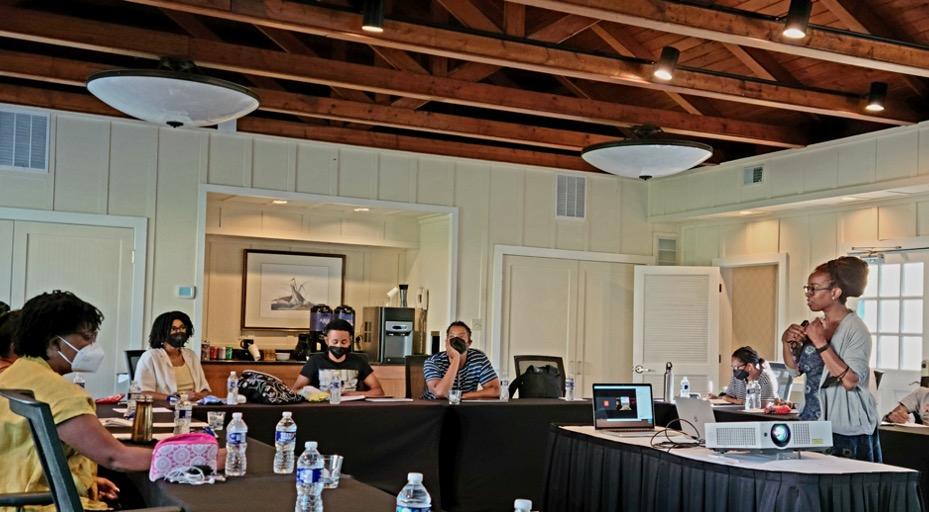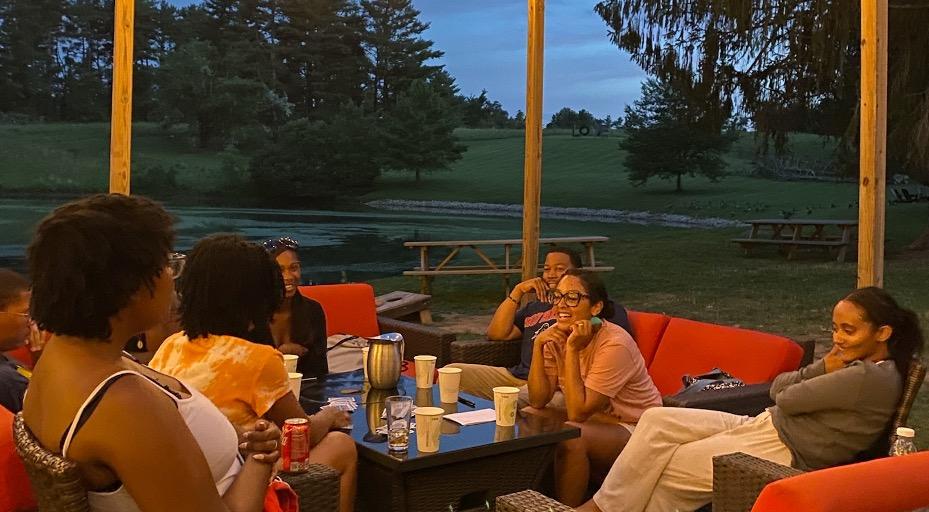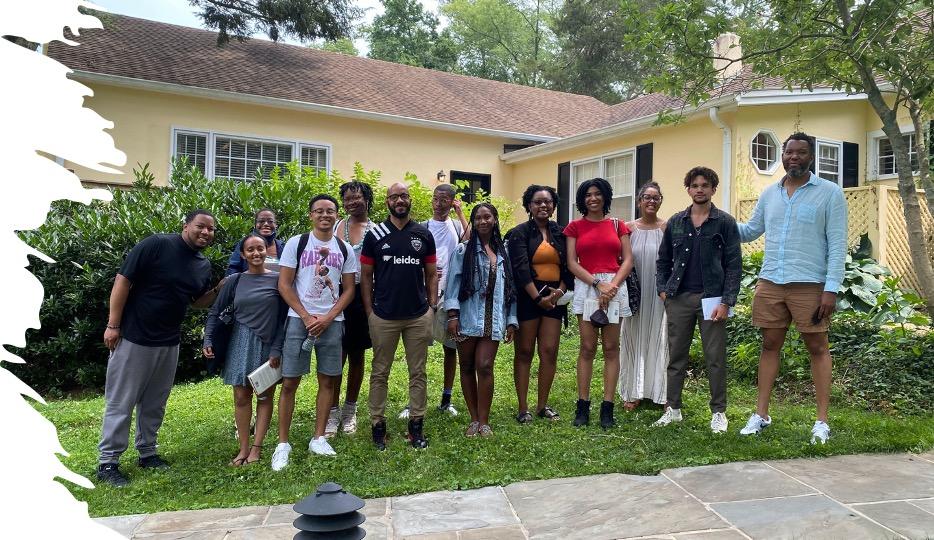The sun peaks over the horizon as Selam Guta grabs her bow and arrow. It was one of the activities provided to inspire students who might need a different perspective or idea, by trying something new. With a staggered stance and a deep breath, she envisions the story of an Ethiopian American teen who returns to Ethiopia following unforeseen circumstances. This creative narrative is one that Guta has been working on for quite some time but was able to thoroughly nurture during her time at the Zora Neale Hurston Summer Writing Workshop. What better way to craft the best creative writing masterpiece than to tap into your very own Hunger Games’ Katniss Everdeen?
“Writing this piece became a sort of thought experiment into ‘what would happen if my fears about identity and loss came true together?’,” says Guta, a junior majoring in English and minoring in African studies. “Having the opportunity to work in community with such amazing writers and authors that I admire and a group of peers that inspire me was an absolute privilege. We really built a writing family together and have continued to support one another since this Summer.”
The Zora Neale Hurston Summer Writing Workshop was organized by Howard professor and bestselling author Ta’Nehisi Coates to build a community between emerging young authors. During this two-week retreat in rural Virginia, 10 Howard University English students were meticulously selected to escape the everyday distractions and get back to the foundation of storytelling. Among other activities, they were visited by a host of acclaimed writers, including Jacqueline Woodson, Yona Harvey, and Hanif Abdurraqib.
We really built a writing family together and have continued to support one another since this Summer.”
“The goal of the retreat is to give students an idea of what it is like to be a real writer,” says Coates. “The job of art is to see the world clearly – to see beyond numbers and see the humanity in people. Given the particular space that Black people occupy in American history, I think we should have a creative writing program at all our HBCUs.”
Sociologist, author, and poet Eve Ewing, PhD, and Coates taught two separate classes every day for three hours each. The coursework incorporated various methods of analyzing creative writing, including peer reviewing, examining the work of award-winning authors, and exploring various genres. Students received academic credit for their participation and a new support group for their creative minds.
Howard is only one of a few HBCUs that offers an undergraduate creative writing program. Students focus on writing fiction, poetry, or non-fiction. The retreat is one of several ways to engage students interested in creative writing. Students also produce the campus literary journal The Amistad.
Creative writing is a crucial way of affirming one’s culture, says Dana Williams, PhD, dean of the Graduate School. “No nationality or ethnic group with a robust body of literature can be denied,” she says, noting why it’s important to offer a creative writing outlet on campus.
“There is something about the Howard student who is aware of culture in such nuanced ways,” says Williams, who is also an English professor. “The thinking that happens on the campus just creates such a complicated and sophisticated writer that you aren’t going to get anywhere else. Students are so saturated with global Blackness that the way that they think about artistic production is just unique and necessary. The legacy of Zora Neale Hurston, Sterling Brown, Amiri Baraka, Lucille Clifton, Toni Morrison, AB Spelman persists!”
Article ID: 1016




